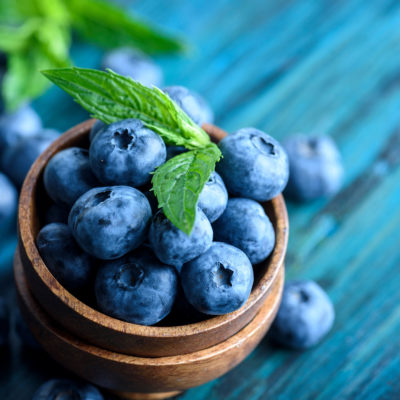Carol Cheatham, PhD is an associate professor of Psychology and Neuroscience at the UNC Nutrition Research Institute. The Cheatham Lab studies the importance of nutrients for the development of memory and attention abilities.
This article originally appeared on newsweek.com.
You’re working through the day, trying to study for an exam or memorize a presentation, when you are hit by a bout of mid-afternoon munchies—what do you reach for?
Maybe you go for a protein bar or a piece of toast, but did you know that some foods might actually boost your brain and help you memorize your task?
“There are a number of foods that are known for their ability to support brain function,” Carol Cheatham, an associate professor in the Department of Psychology and Neuroscience at the University of North Carolina at Chapel Hill, told Newsweek. “Food is the fuel that runs the brain!”
So what are these brain-boosting superfoods and how can you incorporate them into your mid-afternoon snack?
BLUEBERRIES
Blueberries boast a bounty of health benefits and are packed with vitamins, fiber and antioxidants. They have also been shown to support brain function.
“Our research shows that eating wild blueberries improves the speed with which information is processed in the brain,” Cheatham said, who has studied the impacts of wild blueberries on brain function. “An habitual wild blueberry consumer requires less time to learn new information. We believe that this improvement in speed is also related to the efficiency with which a memory is coded and stored.”
But how many blueberries would you need to eat to see these impacts?
“Our work uses approximately 1.5 cups of fresh wild blueberries a day for [several] months,” Cheatham said. “However, the bioactive properties in food are color-coded such that it is possible all dark-colored berries would have similar effects. Thus, a diet that contains berries on a daily basis in possibly any amount would be beneficial. For those who need extra brain support—for example, Boomers like me—1 to 1.5 cups a day is going to have the most noticeable effect.”
NUTS
Nuts in general are an excellent source of healthy fats, protein, antioxidants and vitamins. However, Cheatham said that almonds and walnuts in particular have the edge when it comes to boosting our brains.
Walnuts are rich in a plant-derived omega-3 fatty acid which is known to play an important role in brain function. Studies have shown that eating as little as 10.3 grams of walnuts per day is enough to improve response time and cognitive performance.
Walnuts have been associated with improved sustained attention and problem solving in adolescents and may also help to protect the brain from age-related cognitive decline. And as well as supporting physical brain function, they have also been shown to positive impact mental health during periods of intense academic stress.
WASABI
Wasabi may be a more acquired taste than nuts and berries, but a new study published last month in the scientific journal Nutrients has shown that this pungent plant could help support cognitive performance, particularly in older adults.
“Wasabi would have antioxidant and anti-inflammatory functions,” Rui Nouchi, a researcher in psychology and neuroscience at Tohoku University in Japan and lead author on the study, told Newsweek. “These functions are important to enhance cognitive performance.”
The chief ingredient here is a compound called 6-MSITC, which has previously been shown to display anti-oxidant and anti-inflammatory properties and was associated in improvement in episodic and working memory function in the participants in Nouchi’s 12-week-long study. However, this ingredient is only found in pure Japanese root wasabi and is unlikely to be present in significant quantities in your standard grocery store wasabi peas.
Having said that, legumes like peas have also been associated with improved cognitive function in the elderly, so wasabi peas might not be a bad option after all.
KALE CHIPS
Moving from root to shoot, Nouchi’s team have also found that a compound called lutein, found in dark leafy greens like kale and spinach, may also impact brain function and memory.
“Lutein can improve cognitive functions,” Nouchi said.
While we tend to think of these vegetables as a side dish to accompany a main meal, they can also be roasted or air fried to make a crispy, healthy snack. Lutein can also be found in eggs and avocadoes.
SALMON CRACKERS
Most of us tend to think of fish as a main meal rather than a snack, but a smoked salmon and cream cheese cracker or salmon sushi roll makes for a superb cerebral stimulator. Oily fish in general are high in omega-3 fatty acids which, like walnuts, are known to support brain function.
Numerous studies have linked consumption of oily fish with lower risk of memory-associated cognitive decline, like dementia, particularly in older adults.
Cheatham said that salmon and sardines were particularly beneficial for brain function, so if you don’t like sushi you could always chow down on some sardines on toast.

